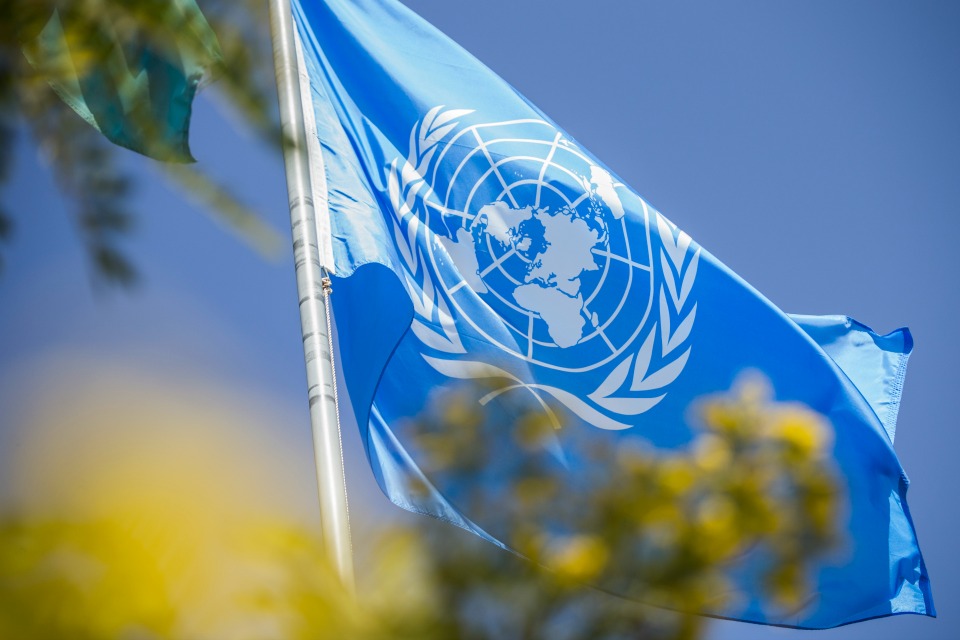"The deterrence and security provided by EUFOR are fundamental during this period of reform in Bosnia and Herzegovina."
Statement by Stephen Hickey, UK Counsellor to the United Nations, on the situation in Bosnia and Herzegovina

Thank you Mr President.
I’d like to begin by welcoming you, Dr Inzko, back to the Council and by thanking you for your reports and for your briefing just now. As High Representative, you have the United Kingdom’s full and continuous support in your efforts to help Bosnian authorities overcome the challenges they face.
Mr President, as penholder for the Western Balkans this month, the United Kingdom warmly welcomes the unanimous adoption of resolution 2315 today. The deterrence and security provided by EUFOR are fundamental during this period of reform in Bosnia and Herzegovina. So this united show of support for the continuation of the Mission is a clear message to the people and leaders of Bosnia and Herzegovina; a message of this Council’s commitment to the country’s stability, security and territorial integrity.
Such a message comes at an important time. The past twelve months have been eventful, both for reform, for the country’s future in the EU, but eventful also for political upheaval, for the persistence of divisive rhetoric, and sadly, for challenges to the peace agreement.
This was most clearly seen in the decision of the Republika Srpska authorities to hold a referendum in September, in clear violation of the ruling of the Constitutional Court.
At heart, this wasn’t about a national day; it was instead a direct challenge to an integral part of the Peace Agreement.
As set out in Annex 4, the Constitutional Court is vital to the Agreement’s implementation. And as again set out in Annex 4, the Court’s decisions are final and binding. So when a decision is ignored, the legitimacy of Dayton institutions is threatened. Such attacks are unacceptable, they are destabilising, and I strongly condemn them in this Chamber today.
But it’s important to note, Mr President, that the challenge posed by the referendum went far beyond what’s written in the peace agreement. It evoked dark and divisive sentiments, not seen or heard for many years, but clearly still lingering just below the surface. It evoked words of war, of hatred, of division – words that have no place in Bosnia and Herzegovina.
So I call on political leaders of all sides, of all parties to refrain from this divisive nationalist rhetoric. It only distracts from the real issues, where progress is so desperately needed.
Take Mostar, for example. For over eight years, the people of that town have been unable to elect their own representatives. Instead, they have existed in a frozen stalemate, where progress has been held hostage by division. So let us all call on all relevant parties to reach an agreement to allow elections to be held. And I hope that the authorities can resolve quickly the issues in Stolac, so as to allow the failed elections there to take place as soon as possible.
Elsewhere, we hope that following the election in Srebrenica, the new Mayor will work for the benefit of all communities. It’s crucial to see a renewed focus on reconciliation and the local economy, so that all citizens see a future in that municipality.
Mr President,
For all the challenges of the last twelve months, the leaders of the country have also made reforms, away from the rhetoric, away from the division. In February, Bosnia and Herzegovina applied formally to join the EU. And in September we saw all 28 EU Foreign Ministers agreeing to task the Commission to review that membership application.
These are significant step forwards. We should all welcome the progress made on the Reform Agenda; it shows what Bosnian leaders can do when they work together. And let us all encourage Bosnia and Herzegovina’s leadership to continue making progress on that agenda, so that all their citizens can benefit from the prosperity and security afforded by Euro-Atlantic integration.
In that effort, they will have no stronger supporter than the United Kingdom. But to make progress, further efforts are required on registering defence property, needed for the activation of the NATO Membership Action Plan, and for progress on the 5+2 agenda.
But until these efforts bear fruit, we remain committed to the continuing role of the High Representative and his office. Dr Inzko, you continue to have our full support as the final authority in theatre regarding the civilian implementation of the Peace Agreement. This includes supporting the use of your Bonn Powers if the situation requires.
Because, together with EUFOR Operation Althea, you, as High Representative, have a vital role to play in Bosnia and Herzegovina until stability and security are firmly entrenched.
Thank you.